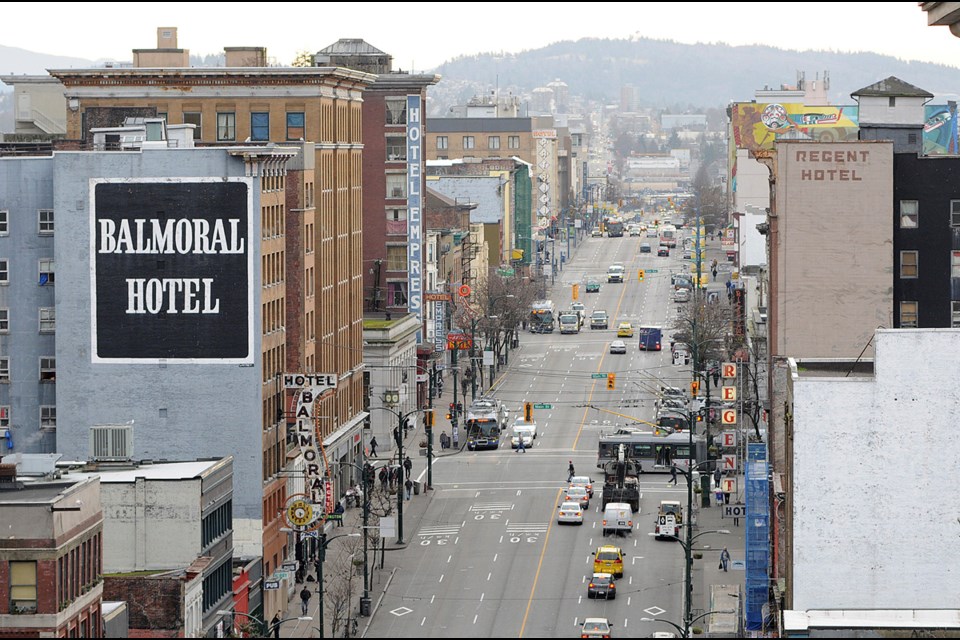Let me tell you about the Groundhog Day I had Tuesday at city council.
First, some history…
Sixteen years ago, when I was typing away at The Vancouver Sun, I wrote a piece about 10 single-resident-occupancy hotels in the Downtown Eastside that were causing all kinds of problems for police and city officials, not to mention tenants.
It hit the front page.
“From my investigation of these hotels, it is clear that the owners are benefiting financially at the expense of their clients’ health and are making no efforts to maintain an acceptable standard of living,” said then-VPD Const. Jodyne Keller, who was tasked with conducting a review of 10 of the worst hotels in the Downtown Eastside.
Some of the problems:
· In 1999, police responded to 780 emergency calls and 58 overdoses at the hotels, which had a combined 565 rooms. The majority of calls were for assaults, drugs and prostitution. At three of the hotels, 80 per cent of the calls were strictly for drugs.
· Two hotels had no desk clerks, many rooms were fire hazards, many of the hotels smelled of urine, a stove in one hotel was full of stolen property, toilets were overflowing, there was open and active drug dealing and prostitution, every hotel had a shooting gallery for drugs, welfare fraud appeared common.
Anyway, you get the drift – not pleasant places.
The hotels named by police were The Balmoral, The Beacon, The American, The North Star, The Walton, The Beacon, The Golden Crown, The New Zealand, The Evergreen and Gees Royal Rooms. Some are still around, some have changed names, a couple were purchased by the provincial government and I believe some are closed.
A few years after I wrote that story, along came the Vancouver Agreement Hotel Analysis Project. Researchers from the city, VPD, Vancouver Fire-Rescue, Vancouver Coastal Health and three provincial government ministries revealed that 54 hotels generated 11,269 emergency calls in 2005.
Many of the hotels were rife with welfare fraud, fire code violations, management problems and bedbug and rodent infestations. The city’s property use branch, which enforces the standards of maintenance bylaw, found 73 per cent of building managers had no management training. City inspectors discovered 88 per cent of the hotels were each staffed by a single desk clerk.
I’m giving you all this background because it sets up my Groundhog Day. Early Tuesday morning, I plunked myself down at the media table in council chambers to listen to city staff’s presentation on what the city was doing to...ahem...tackle problem SROs in the Downtown Eastside.
Staff even provided another top 10 list of hotels that continue to contravene bylaws.
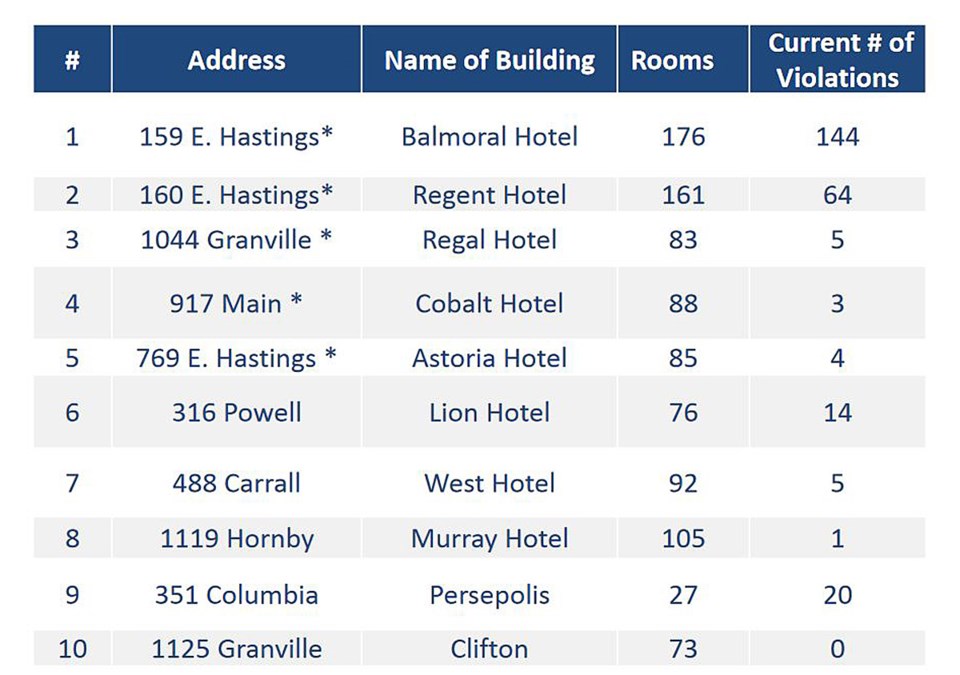
My thought: That was so 16 years ago.
But here we are folks, in 2016, listening again to the city tell us how several Downtown Eastside hotels are a nuisance, and how they’re going to bring order to the notorious buildings. This time they’re serious. Maybe they’ve always been serious. Or, maybe it’s just that hotel owners didn’t take the city’s efforts seriously.
Whatever it was, or is, the city has a new plan to prevent me from writing another story about problem hotels in 16 years from now. It involves many people, including police, the fire department, city inspectors and city lawyers.
Task forces have been struck, advisory groups have been created and hotel owners are making regular trips to city hall to meet with people such as Kaye Krishna, the city’s new general manager of development services, buildings and licensing, who led staff’s presentation to council this week.
Krishna talked about some of the good news before she got to the bad news. The good news was property inspections increased 54 per cent since 2012. Health and safety bylaw violations also dropped significantly for the same time period; a point-in-time comparison showed 7,210 violations in 2012 to 1,460 so far this year.
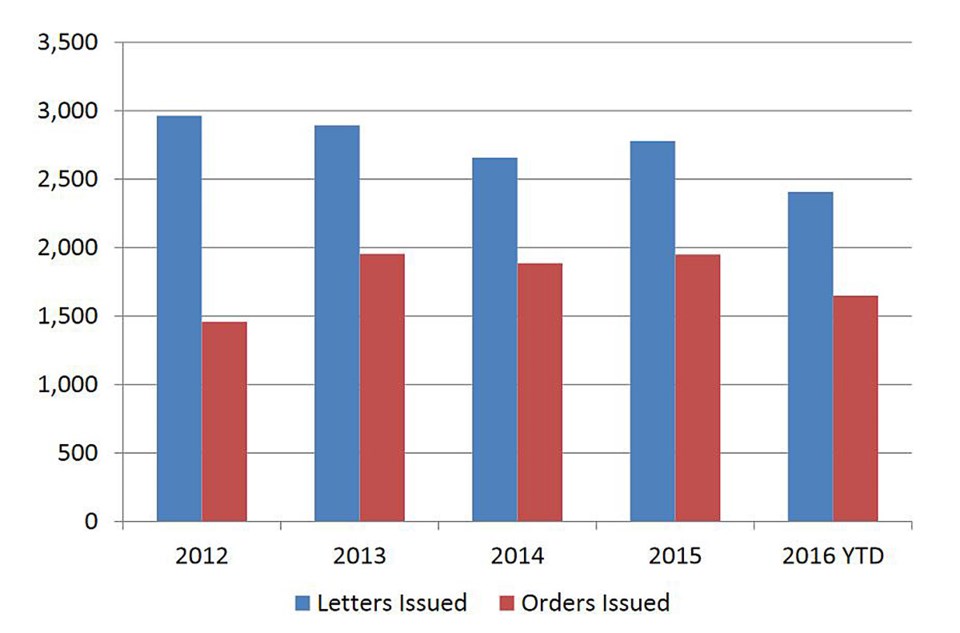
Krishna pointed to a five-year effort from staff to focus on the hotels as the reason for the drop in violations. That effort included the creation of the city's rental property database, which makes public all violations for buildings that have five or more units.
It's been described as a public shaming tool.
The city has taken a multi-pronged approach to cleaning up the hotels but has backed off on taking owners to court. Statistics show fines imposed against owners dropped from a total of $299,150 in 2013 to $34,500 this year.
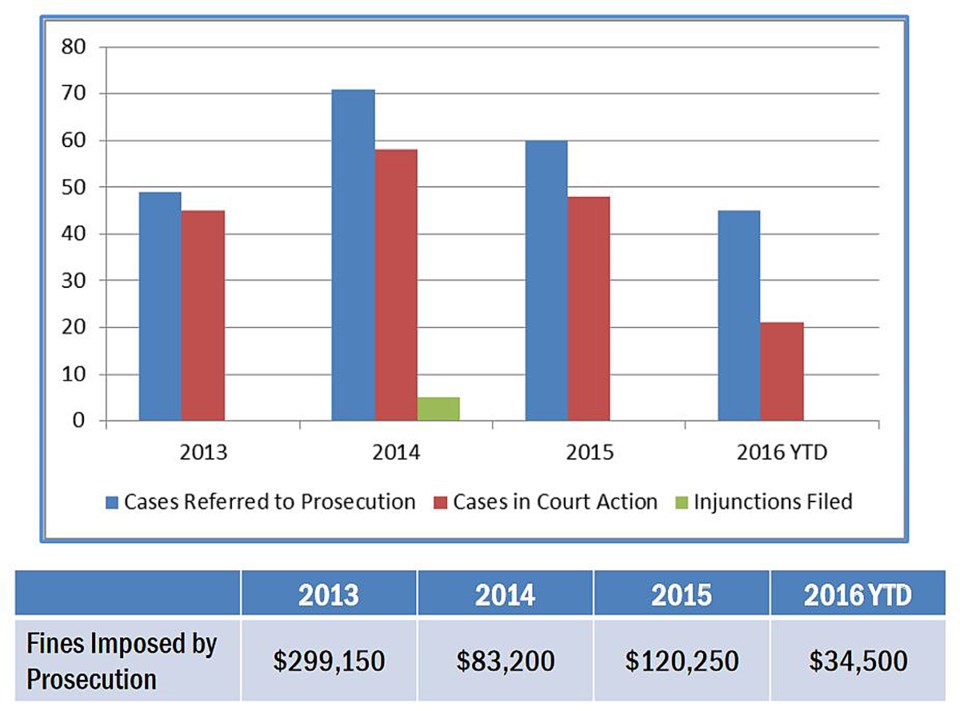
City lawyer Grant Murray told council the city's typical routine towards legal action begins with a letter notifying an owner of a violation. If that doesn't work, then an order is sent. The third step is to send the file to a prosecutor, who assesses the evidence and determines whether it's in the public interest to prosecute.
"It doesn't necessarily result in compliance, if you achieve a prosecution," Murray said. "It's possible that someone will comply in order to avoid a further prosecution, but it's a tool designed more to punish than to result in compliance."
Although Murray said he recognized there has to be an incentive for hotel owners to repair their buildings, he pointed out there is also concern the money hotel owners are spending on fines and court fees could be better used to fix their dumps.
"It pains me as a lawyer to say it, but in many cases lawyers don't create solutions to problems," he said, before going on to provide an example of how prosecutions aren't always effective. "Room five has a broken window. You go back and room five's window is fixed but room six's window is broken. If you were to prosecute on room five's broken window, it doesn't fix room six's broken window."
Murray noted the city hasn't pursued an injunction against a hotel owner in a couple of years. He said the last time the city did that, the hotel -- The Clifton on Granville Street -- ended up being closed, leaving fewer SRO units for low-income people.
"While certainly the number of violations associated with that building is now zero, it's also housing nobody," he said, referring to the city's housing and homeless crisis.
What I've heard for years and heard again at council was owners cite the high cost of maintaining and fixing their buildings and how the provincial $375 shelter rate paid by tenants doesn't cover the bills.
Some owners, however, charge a lot more than $375 per month, as research conducted by housing advocates in the Downtown Eastside has shown year after year. Still, the city recognizes the low welfare rate is a problem.
"These are really complicated issues," Krishna said. "It’s not just about the physical building itself, it’s about the social economic challenges of the buildings, the health of the tenants, our ability to help steer the actions of the owners and really the challenges that these owners face."
Interestingly, the hotel identified 16 years ago by police as causing them and tenants the most headaches was the Balmoral at 159 East Hastings. The hotel also tops the city's list released this week.
It has 144 violations. Second on the list is the Regent Hotel, which is located across the street from the Balmoral. It has 64 violations. Both hotels and three others -- the Regal, the Cobalt and the Astoria -- that comprise the worst five hotels on the list are all owned by the Sahota family.
As I have for years when writing about these hotels, I made my obligatory call this week to the Sahota family home on Angus Drive in Shaughnessy but got no answer. I believe I've only spoken to Paul Sahota once in more than a decade and, as I recall, he said he was on the case to fix up his buildings.
Anyway, Krishna said the city meets monthly with the Sahotas. What the city does at those meetings amounts to what Krishna described as "detailed hand holding." The city has also made it clear it wants certified contractors doing maintenance and renovations instead of so-called handymen, or friends with little knowledge of building codes.
"We pursued court action with [the Sahotas] over a number of years and the analogy my team used was it was like a whack-a-mole," she said. "So it was essentially every time we tried to pursue one issue with them, they would fix that issue. But they would stop paying attention to others, and other issues would crop up elsewhere. So it was really problematic and the court cases just really deterred them from focusing on the issues at hand."
Coincidentally, the Balmoral and the Regent are the subject of two class action lawsuits brought on by housing advocates to repair the rat-infested hotels and have the city or province buy them from the Sahotas.
Stay tuned on that one.
Meanwhile, the Lion hotel at 316 Powell St., which made news last winter because it's boiler broke down and left tenants without heat, is number six on the city's list. The boiler still hasn't been fixed but is expected to be operating possibly this week.
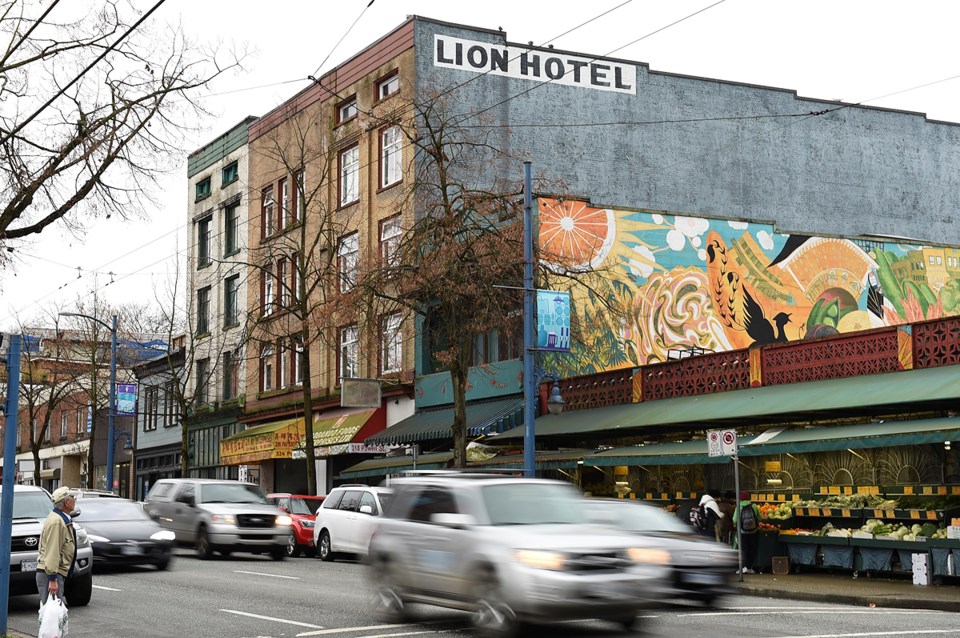
Though the Lion has only 14 violations, Krishna noted a broken boiler coupled with a violent tenant who has assaulted the manager and is destructive to property is the reason for the hotel to be high on the list.
"These are the kinds of issues that if you just look at the violation count, you don't get the full story of the buildings and their challenges," she said.
There have been cases where the city has stepped in and paid for smaller repairs and added the cost to the owner's tax bill, but not complete renovations. The city has also been hampered by provincial laws that prevent city staff from immediately taking action on enforcing an order until 60 days after notifying an owner of a needed repair.
The province, by the way, purchased more than 25 hotels several years ago and has renovated many of them, and is working on others. The Insite supervised drug injection site also opened in 2003, which advocates say has reduced the number of shooting galleries in the hotels.
Yet, drugs and homelessness plague the community.
Looking ahead to next year, the city's focus on problem hotels continues with what Krishna called the Proactive Enforcement and Preservation Initiative, or PEPI.
Based on some of the work Krishna did in New York City, where she worked for the Department of Housing Preservation and Development, the city project will aim to enhance and develop new enforcement tools and work closer with the provincial government, health authorities, nonprofits, tenants and advocates to clean up the hotels.
In New York, Krishna said, they created a loan program for "well-intended owners" to help with repairs. That could be something Vancouver looks at but it is only a discussion point at this time, she told me after her presentation.
For now: "Our enforcement teams are in these hotels, if not once a week, multiple times a week or every other week. Our staff are there. Between police, fire, building inspectors, property use inspectors, housing activists and social services folks -- they're in these buildings. That doesn't mean these buildings don't have a lot of problems and that the tenants don't face a lot of issues. I acknowledge that. But we're actively spending time and trying to steer this as much as we can, and we're dedicating the resources."
Note to self: Schedule call with Krishna in 2032 for update.
mhowell@vancourier.com
@Howellings
